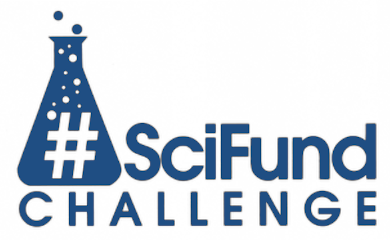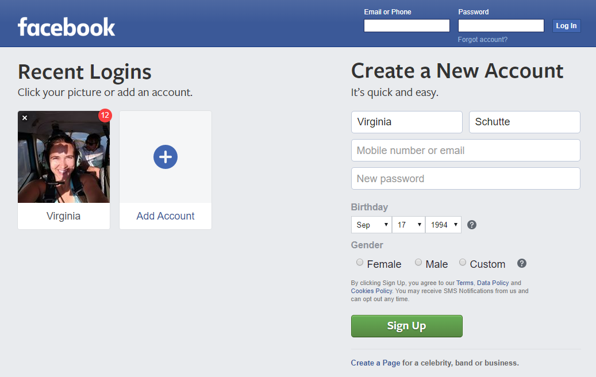The scientific culture has become an incentivized one. Grant money is frequently awarded to scientists who have the most clout, the highest number of publications, and the publications with the highest impact and citations. Future career positions are also based on these numbers. So it makes sense that good work receives good rewards.
Unfortunately, it is a common misconception that open research is a system where academic creativity and labor are simply given away with no reward. Given the state of the traditional system, the rewards for practicing ONS seem low. However, there are plenty of tools in development that provide incentive to practicing scientists. Not only is there professional recognition opportunities, but there are many personal incentives for maintaining an open notebook.
Open notebook science can enhance your academic prowess through two main mechanisms: (1) experimental errors, shortcuts, and falsification will be reduced and (2) personal research efficiency will increase.
The best open notebook platforms have features that allow easy organization and searching mechanisms. Maintaining a well organized notebook is a essential to any research project for future lab members and for personal development and reference. By keeping an electronic record, the time to maintain the notebook, and reference past projects and experiments is minimized. As the technology improves, many of these processes can be automated further widening the gap between the capabilities of electronic and open notebooks over traditional paper notebooks.
By maintaining an open record, the scientific process becomes transparent. Mistakes made in the lab become costly to the scientific reputation of the experimenter. If the error persists through publication, the chance for the flaw to be discovered is increased, and publication retraction may be required. Through open notebook science, experimental errors may be noticed sooner in the research process, not just by the experimenter, but by other lab members, collaborators, and other researchers independent of the lab.
Scientists may also feel immediate pressure from online exposure. This pressure could limit mistakes in the lab, which may be brought on by shortcuts in the experiment procedure, data acquisition, and analysis. The psychological effects of having to share protocols and results in full detail and in real-time could prevent shortcuts from having a negative effect on the research. To add to this, inconsistencies in the experiment (caused by non-thorough reporting) could be discovered, impacting the reputation of the lab and the experimenter.
Ultimately publishing openly in real time, forces an examiner to be careful, thorough, and explicit. Any errors made in an experiment could be remedied immediately, instead of down the line. Immediate fixes will have much less impact on a research project, which will save a research time, the lab money, and everyone some humility. No one will be able to question the integrity of the research, because the entire record will be available to anyone.
Open notebook science can increase the efficiency of all scientific research in a manner similar to the enhancement of the individual scientist. In this sense, the scale of benefit is much larger and can impact entire fields of science in addition to individuals and groups.
As experiments are peer reviewed and published, colleagues can follow the work of their peers through literature updates. Unfortunately, the peer review process can be time consuming and preeminent work could be delayed because of a variety of processes. ONS could provide an immediate workaround for the time delay of the peer review process. As research is published in real-time, or as near real-time as possible, colleagues could stay up-to-date with the latest research. Science would be operating at the forefront of thought instead of lagging behind.
Additionally, experimental procedure would benefit. As all research is published, experimenters would have access to detailed protocols, both failed and operational. This would decrease the time to start an experiment or even repeat an experiment from another lab. In the case of repeatability, the time to ensure the viability of an experiment would be dramatically decreased. No longer would an experiment be subject to interpretational error.
In addition to providing scientific methods, raw data could be used and reused in ways that were previously impossible. The internet is a huge loosely connected network of information, and can be at times disconnected. Tools have emerged and will continue to develop to make sense of all the new data being created daily. Tools like Dryad and DataOne provide data hosting, archiving, and searching (among other tools) to connect scientists from around the world to data from taken in distant locations. By providing access to data, new discoveries can be made that are only possible via electronic methods. For example, Google scientists partnered with the Center for Disease control to show that influenza outbreaks could be detected through local search queries.
Previously it is mentioned that the publication process is time consuming, but this isn’t to say that open notebook science would replace the peer review publication model. Instead, I would argue that it could greatly supplement it. Open notebook science could hypothetically result in a data deluge (not unlike the current internet system). Scientists may feel overwhelmed with having to read every protocol or data set created by every lab they wish to follow. In this scenario, the current methods would be more than suitable. However, having access to the open notebook account of the experiments documented in a publication would provide deeper insight into the experimental record.
Open notebook science can provide new measures to a scientific career. Traditionally, a scientific career is evaluated based on several criteria: (1) grant awards, (2) peer reviewed publications, and (3) citations. When evaluating scientific merit, the number of publications and citations play the largest role.
As data becomes more accessible, and thus usable, there has arisen a need for the data to be credited. As such, many tools have emerged that allow scientists to organize, use, and reuse data and be credited for sharing data and to credit others for using data. Many of these tools have been developed specifically for scientific use (see figshare and ImpactStory).
While there are tools specifically designed to provide alternative metric analysis (altmetrics) of scientific data, many traditional web analysis tools can also be useful and are freely available. Web analytics software, for instance, can track user information for visitors to an open notebook. The value of an open notebook can be measured by analyzing the pages that are most frequently visited, the duration of the visit, and where the visit led (to another post in the experiment perhaps).
Many website commenting systems like Disqus, provide link tracking capabilities (linkback counting) and social media propagation. Mostly, the purpose is to aggregate the entire conversation relating to a post in one location. This can, however, serve a dual purpose and provide an alternative take on the traditional meaning for citations. Standard web etiquette is such that users can directly link to other websites instead of through a traditional citation, as a means of providing credit for work and for pointing users directly to a source. This same practice exists in social media because of various limits imposed on users. While counting linkbacks isn’t meant to supplant citation merits, it could be used to provide a more complete account of scientific documentation and use.
Providing full, real-time access to research can have many benefits for the scientific community as a whole. Aside from the measurable impacts listed previously, there can be many more unknown benefits. Personally speaking, I’ve had several career milestones because of an online random encounter. I’ve made many personal and career network connections because my research is openly accessible. As such, it is my personal opinion that research should be made available, simply because one can never know what good may come because of the availability of information.


